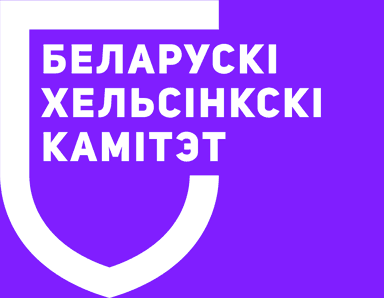
On 5 August, the 113th session of the Committee on the Elimination of Racial Discrimination begins to consider the report of the Belarusian authorities on the fulfilment of their obligations under the International Convention on the Elimination of All Forms of Racial Discrimination. Belarus will report on 15 and 16 August. A broadcast of the meeting will be available here.
At the 113th session of the Committee on the Elimination of Racial Discrimination (August 2024), the Committee will review the report by Belarusian authorities on their fulfillment of the International Convention on the Elimination of All Forms of Racial Discrimination.
The Belarusian Helsinki Committee and Human Constanta, in collaboration with PEN Belarus and Lawtrend, have analyzed the situation regarding racial discrimination and submitted an alternative report to the Committee. This report addresses issues that have arisen as a result of the authorities' policies since 2020 (the last considerations and recommendations from the Committee were received during the previous reporting cycle in 2017).
The alternative report from civil society allows the Committee, state representatives, and other interested parties to understand issues that the state does not mention in its report. It provides insight into the situation from the perspective of vulnerable groups not represented in the official stance and offers recommendations for improving the situation.
Dynamics of problematic issues
We did not aim to cover how Belarus fulfills every single obligation under the Convention. Instead, we addressed the issues highlighted by the Committee as problematic in 2017, which, unfortunately, remain relevant. Additionally, we focused on how the authorities' actions after 2020 have impacted the situation regarding racial discrimination (which also includes discrimination based on nationality/ethnicity).
Most of the recommendations from the Committee, civil society, and the Universal Periodic Review regarding combating discrimination remain unimplemented. Among other issues:
-
The country still lacks comprehensive anti-discrimination legislation and effective legal remedies for those facing acts of discrimination;
-
Judges are not prepared to handle discrimination cases or work with the Convention, despite the state's claims to the contrary;
-
Discrimination against the Roma population persists, including practices of ethnic profiling and widespread unjustified denial of access to certain medical services;
-
Acts of racial discrimination and the use of hate speech by the state or with its tacit approval have not only persisted, but have escalated to a new level.
After 2020
We have already reported that the overall situation regarding equality and non-discrimination in the country is constantly deteriorating. Since 2020, discriminatory practices have gradually become part of a systemic policy of targeting groups treated differently by the state. These include certain national minorities, primarily those from countries labeled as "external enemies" by the current regime's ideology — Poles, Lithuanians, and Ukrainians.
After 2020:
-
As part of the broader crackdown on civil society, organizations dedicated to preserving and developing national cultures and traditions are being dismantled;
-
Activists from the aforementioned national minorities are being persecuted;
-
Progress in protecting minority languages has been reversed. According to national experts and experts from the Council of Europe, by 2017, Belarus was already prepared to join the European Charter for Regional or Minority Languages. However, since 2023, legislation no longer allows for the establishment of preschools and general secondary education institutions where children can learn in their minority language; the only possible format is the creation of separate groups and classes within such institutions. Moreover, Polish and Lithuanian schools are being closed, and pressure on organizations providing German and Polish language education is exerted.
-
The situation regarding the right to participate in cultural life continues to worsen (currently, conditions for exercising this right are virtually nonexistent, with a rating of 1/10 for 2023, reflecting a 4.4-point decline over the past five years). This deterioration significantly affects national minorities. In addition to shrinking opportunities to study in their native languages, they face a discriminatory cultural policy involving censorship, the designation of books, media, and other informational products as "extremist," the destruction of historical and cultural heritage to maintain the state's preferred historical narrative, and the dissemination of hostile narratives against them in media and educational materials;
-
Since the full-scale Russian invasion of Ukraine, Ukrainians have faced particular persecution, including profiling and heightened scrutiny by the authorities. Ukrainian culture is effectively banned and equated with dissent against the state's official support for Russian policy.
-
An ecosystem of "anti-extremist" legislation has been developed, allowing the state to suppress a wide range of rights and freedoms of dissenters (or those deemed as such by the authorities) under the pretext of combating "extremism."




